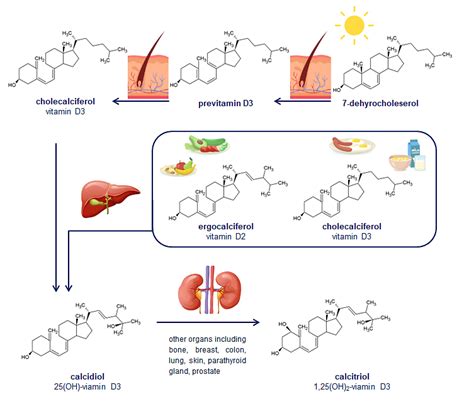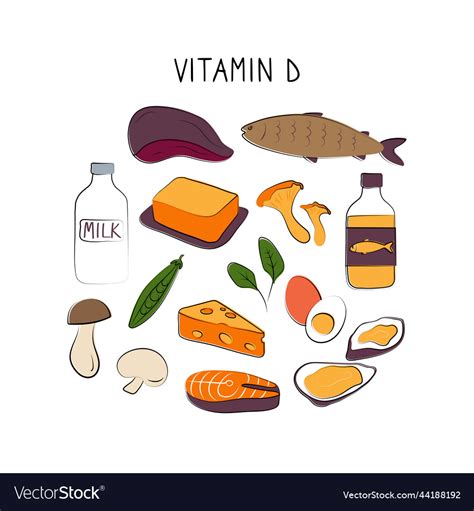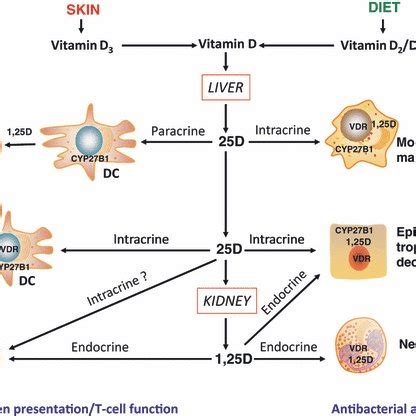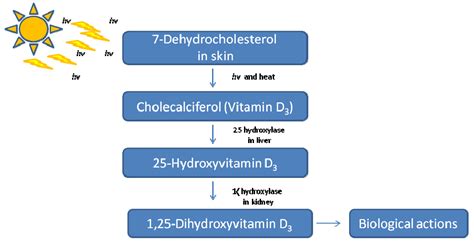Intro
Discover the benefits of Vitamin D Cholecalciferol, boosting bone health, immune function, and mood with this essential nutrient, also known as calciferol, supporting overall wellness and preventing deficiency.
Vitamin D, also known as cholecalciferol, is a fat-soluble vitamin that plays a crucial role in maintaining strong bones, immune function, and overall health. The importance of vitamin D cannot be overstated, as it has been linked to a reduced risk of various diseases, including osteoporosis, diabetes, and certain types of cancer. Despite its significance, many people around the world suffer from vitamin D deficiency, which can have severe consequences on their health. In this article, we will delve into the benefits of vitamin D cholecalciferol, exploring its mechanisms, advantages, and practical applications.
The human body produces vitamin D naturally when exposed to sunlight, but this process can be hindered by factors such as limited sun exposure, skin pigmentation, and the use of sunscreen. Additionally, vitamin D can be obtained through dietary sources, including fatty fish, egg yolks, and fortified foods. However, for many individuals, supplements are necessary to maintain adequate levels of vitamin D. The benefits of vitamin D cholecalciferol are numerous, ranging from improved bone health to enhanced immune function and cancer prevention.
Vitamin D deficiency has been linked to various health problems, including rickets, osteomalacia, and increased risk of fractures. Furthermore, research has shown that vitamin D may play a role in reducing the risk of autoimmune diseases, such as multiple sclerosis and type 1 diabetes. The mechanisms by which vitamin D exerts its effects are complex and involve the regulation of gene expression, cell growth, and differentiation. By understanding the benefits and mechanisms of vitamin D cholecalciferol, individuals can take proactive steps to maintain optimal levels and reduce the risk of related health problems.
Vitamin D Cholecalciferol Mechanisms

The mechanisms of vitamin D cholecalciferol are closely tied to its benefits, as the regulation of gene expression and cellular processes underlies its effects on bone health, immune function, and cancer prevention. For example, vitamin D has been shown to regulate the expression of genes involved in osteoblast differentiation, which is essential for bone formation and mineralization. Similarly, vitamin D has been shown to modulate the expression of genes involved in immune function, including those involved in the regulation of inflammation and immune cell activation.
Vitamin D Cholecalciferol Benefits for Bone Health

The benefits of vitamin D cholecalciferol for bone health are numerous, including:
- Improved bone density: Vitamin D helps regulate calcium and phosphate levels, which are essential for bone mineralization.
- Reduced risk of fractures: Vitamin D has been shown to reduce the risk of fractures, particularly in older adults.
- Prevention of osteoporosis: Vitamin D helps maintain strong bones, reducing the risk of osteoporosis and related health problems.
- Regulation of osteoclast activity: Vitamin D helps regulate osteoclast activity, which is involved in bone resorption.
Vitamin D Cholecalciferol and Immune Function

The benefits of vitamin D cholecalciferol for immune function include:
- Reduced risk of autoimmune diseases: Vitamin D may help reduce the risk of autoimmune diseases, such as multiple sclerosis and type 1 diabetes.
- Regulation of inflammation: Vitamin D has been shown to regulate the expression of genes involved in inflammation, which is essential for maintaining immune homeostasis.
- Modulation of immune cell activation: Vitamin D helps regulate immune cell activation, which is essential for maintaining immune function.
Vitamin D Cholecalciferol and Cancer Prevention

The benefits of vitamin D cholecalciferol for cancer prevention include:
- Reduced risk of certain types of cancer: Vitamin D may help reduce the risk of certain types of cancer, including colorectal, breast, and prostate cancer.
- Regulation of cell growth and differentiation: Vitamin D helps regulate the expression of genes involved in cell growth and differentiation, which is essential for maintaining cellular homeostasis.
- Modulation of apoptosis: Vitamin D has been shown to regulate apoptosis, which is essential for maintaining cellular homeostasis and preventing cancer.
Vitamin D Cholecalciferol Food Sources
Vitamin D can be obtained through dietary sources, including: * Fatty fish: Fatty fish, such as salmon and mackerel, are rich in vitamin D. * Egg yolks: Egg yolks are a good source of vitamin D. * Fortified foods: Fortified foods, such as milk and cereal, are good sources of vitamin D. * Mushrooms: Mushrooms, particularly shiitake and portobello, are rich in vitamin D.Vitamin D Cholecalciferol Supplements
Vitamin D supplements are available in various forms, including: * Vitamin D2: Vitamin D2 is a form of vitamin D that is commonly used in supplements. * Vitamin D3: Vitamin D3 is a form of vitamin D that is commonly used in supplements and is considered more effective than vitamin D2. * Combined supplements: Combined supplements, such as multivitamins, may contain vitamin D.What are the benefits of vitamin D cholecalciferol?
+The benefits of vitamin D cholecalciferol include improved bone health, reduced risk of autoimmune diseases, and cancer prevention.
What are the food sources of vitamin D cholecalciferol?
+Vitamin D can be obtained through dietary sources, including fatty fish, egg yolks, fortified foods, and mushrooms.
What are the different forms of vitamin D cholecalciferol supplements?
+Vitamin D supplements are available in various forms, including vitamin D2, vitamin D3, and combined supplements.
In conclusion, vitamin D cholecalciferol is a crucial nutrient that plays a significant role in maintaining strong bones, immune function, and overall health. The benefits of vitamin D cholecalciferol are numerous, ranging from improved bone health to enhanced immune function and cancer prevention. By understanding the mechanisms and benefits of vitamin D cholecalciferol, individuals can take proactive steps to maintain optimal levels and reduce the risk of related health problems. We invite you to share your thoughts and experiences with vitamin D cholecalciferol in the comments section below.
